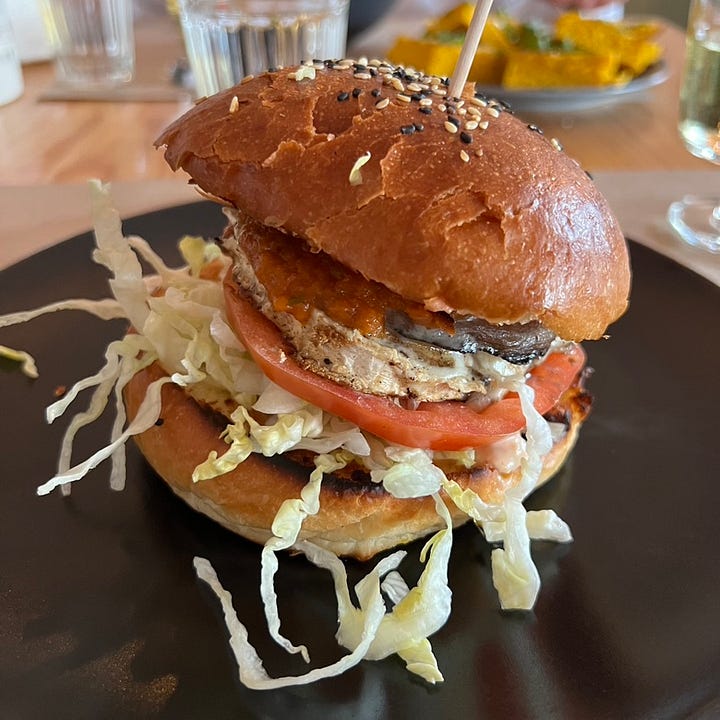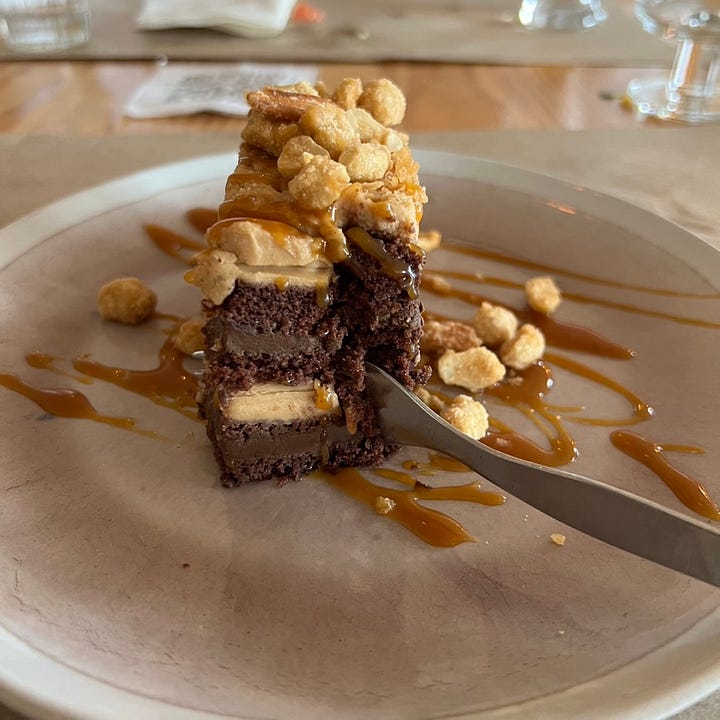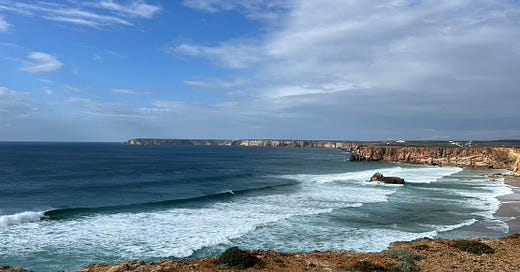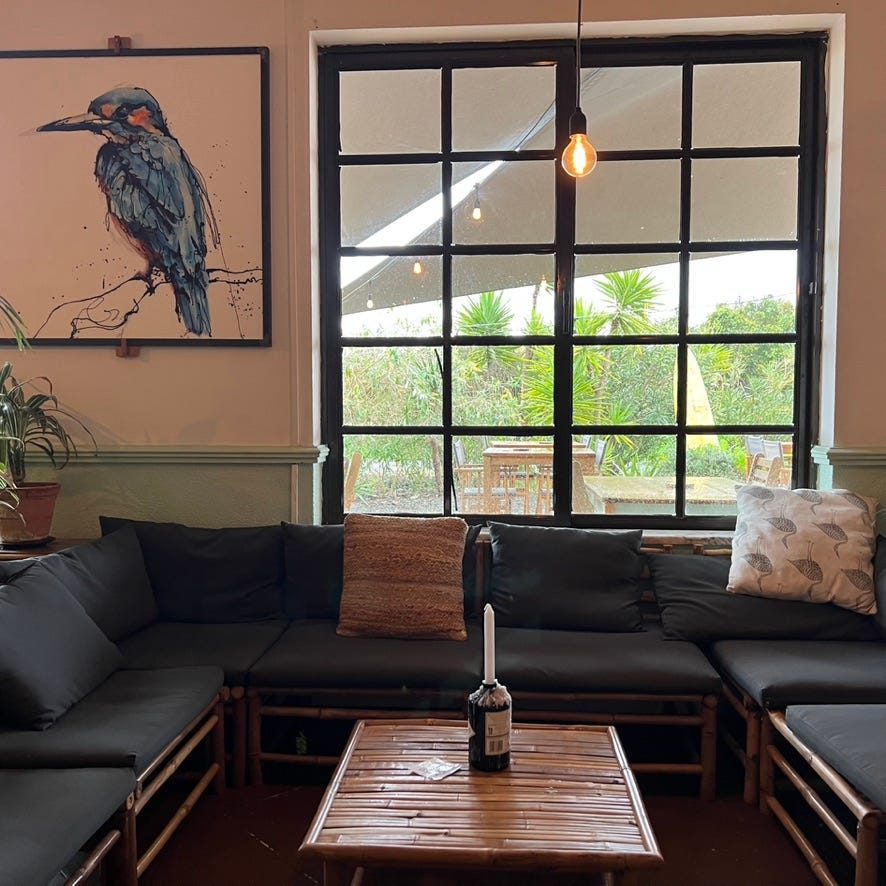My love and I chose to spend time on the southern coast of Portugal this past winter. We are queer women from the American South who have been together for nearly 20 years. We were on vacation in Portugal, but more than that, we were looking for a place to live, a place to retire early. A place that is safe, beautiful and peaceful.
Before we went to Portugal, I researched towns we might want to visit. The sources I read about the Algarve, an area which includes Portugal’s southern coast, mentioned Sagres. These resources described Sagres as a small town only relevant to surfers during surf season. Otherwise, Sagres did not offer much. No shops, markets, or night clubs. No places to go, spend money, and be entertained. Just the ocean, the cliffs, and the beach. The beauty of the place is its relative emptiness in winter and the sound of the wind and the waves.
Standing on the cliffs at Sagres, I felt as if we were at the edge of a continent and we were. In early February, we wore warm winter sweaters, which we had not needed at home in our town for several years. We spent the morning walking a path along the cliffs. Everywhere we walked the ocean and its waves looked different.
After spending several hours hiking in cold, windy weather, we were hungry. Remarkably, given what I’d read about Sagres, we found a cafe: Three Little Birds.
We were thrilled to find Three Little Birds. Even more surprising to us, it was open! As soon as we walked through the cafe door, I felt relaxed. We were there at what I considered an in between time — late for what would be a typical lunch time for us, but too early for dinner. In early February, the place was not crowded; but, plenty of customers were seated throughout the large rooms of the restaurant, which opened onto an outdoor seating area surrounded by beautiful plants. The host welcomed us warmly and told us to seat ourselves at any of the tables.
The Three Little Birds vibe was relaxed, but not slow. Beautiful and also casual in a near-the-ocean kind of way. Having heard that Portuguese restaurants commonly serve meat with rice and potatoes, I was excited to see healthy plant-based options on the menu. I ordered a portobello mushroom burger with lettuce, tomatoes, and caramelized onions. The burger was so tasty.


After our long walk, I had room for something sweet; so, I tried the vegan chocolate cake. Vegan desserts can be challenging to make, more so than dessert recipes that use eggs and milk. This chocolate cake had everything going for it: salted caramel, peanut butter and chocolate ganache. Why are desserts so incredibly satisfying?
Later, after we left the cafe, I wondered about its name. Was three little birds a reference to a poem? a song? When I looked up the phrase, I was surprised to see it was the name of a Bob Marley and the Wailers song that I’ve heard countless times. I just didn’t know the name of the song.
Three Little Birds
by Bob Marley and the WailersRise up this mornin'
Smiled with the risin' sun
Three little birds
Pitch by my doorstep
Singin' sweet songs
Of melodies pure and true
Saying', ("This is my message to you")
Singing' "Don't worry 'bout a thing
'Cause every little thing gonna be alright."
If the Sagres restaurant set out to embody the vibe of Marley’s song, it could not have created a place that more closely aligns with his lyrics and melody.
For new readers of my newsletter, Claiming Home: The New Queer American Diaspora, I’d like to provide an introduction. I am a queer Southerner who has lived and loved in the American South for more than 60 years.
Through images and words, Claiming Home explores three topics:
Things I love about the American South;
Frightening new federal and state laws and cases in the United States that further marginalize oppressed communities and are leading some individuals and families to move, whether to another state or out of the country; and
Portugal, a democratic country more focused on community than the individual, a place where I’m spending more time each year.
Since one of my goals is to learn Portuguese, I also have a Portuguese language translation of this newsletter. For that Portuguese version, I am using a language translation app until I’m able to translate my words on my own. No doubt I will make mistakes, but I want to make the effort with the available tools and limited knowledge I have.
So, on to the next newsletter topic, worrisome laws and actions by officials in the United States with a focus on the American South.
What’s happening in the American South this week?
Children in Florida are heading back to school this month. To review, briefly, just a few of the educational changes that have occurred in Florida in the past year or two: Florida passed laws forbidding teachers from referencing sexual orientation or gender identity in kindergarten through the 12th grade and preventing teachers from providing reality-based information about the history of slavery in the United States.
According to the Guardian, Florida purchased videos from Prager University, an organization that is not a university and does not award degrees. Dan Wilks and Farris Wilks, who work in the petroleum industry, provided considerable funding for the Prager organization. This school year, children from kindergarten through fifth grade in Florida will be shown Prager-created videos that deny climate change, disparage alternative forms of energy, and compare environmental activists to Nazis.
Meanwhile, Florida’s ocean temperatures are rising quickly and its coral reefs are dying. Scientists and environmental activists are alarmed.
Florida’s public schools are telling children so much disinformation that these students may have great difficulty becoming critical thinkers and educated individuals.
Now, onto a contradictory section:
Things I love about the American South
Songbirds
This week, the songbirds I hear in my backyard are one of the things I love about living in the American South. The musical sounds of the Eastern towhee and the tufted titmouse are some of my favorites.
Our area has a dense tree canopy with many oak trees. Once one starts listening closely to bird songs or calls, one may be surprised how many different birds are nearby.
What is the difference between a song and a call? According to the Sacramento Audubon Society, bird songs are more complex and musical than calls. Birds use songs to attract a mate, bond with family, and protect their territory. Bird songs are often heard in the spring.
Although birds sing most frequently in the spring, they call year round. Bird calls include just a few notes and are short in duration. Young birds call to tell their parents they are hungry. Adult birds call to let others in their family group know they have identified a new source of food. Birds also call to tell others in their flock their location or to alert family members to something dangerous.
The Audubon site describes the Eastern towhee’s song in this way:
“The song varies, often with a few introductory notes and usually ending with a long trill, such as drink-your-teeaaa or to-wheeeee.”
To identify the tufted titmouse and its song, listen for:
“A whistled series of 4 to 8 notes sounding like Peter-Peter, repeated over and over.”
Cornell University created Merlin, a free app for your phone which allows you to record bird calls and songs you hear and identify the bird through your recording. Give it a try. If you live near nature, Merlin may change what you hear and how you pay attention to sounds in your daily life.
Merlin can help individuals identify any one of 10,315 bird species in the world. The app provides detailed descriptions, photos and sounds for each bird. I hope you’ll try downloading the app to your phone. I would love to know which bird songs or calls you hear today.





